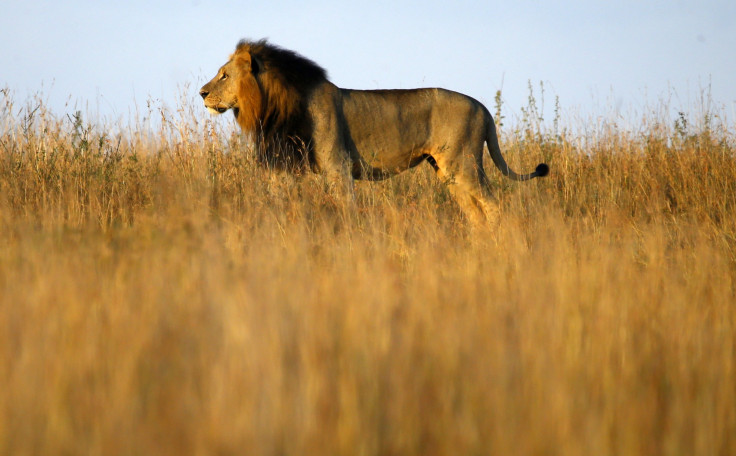Lions Disappearing From West Africa, Scientists Warn Extinction Is On The Horizon If Measures Are Not Taken

The king of the jungle may soon be forced to give up his crown. According to a new study of lion populations, the African lion has nearly disappeared from West Africa, its numbers having dwindled to a mere few hundred individuals. West Africa’s famed big cat, which has remained a symbol of courage and strength throughout history, is now on the brink of extinction across the region.
Building on previous research from Duke University, a team of scientists from Africa, the U.S., UK and Australia spent six years surveying the West African lions. Researchers covered an area spanning 11 countries and a distance of more than 1,500 miles.
According to results of their study, published in the journal PLOS One, only 406 lions remain in West Africa; less than 250 of them are mature individuals. Of the 21 lion habitats observed, only four isolated areas had confirmed populations – one in Senegal, two in Nigeria and a fourth in an area bordered by Benin, Niger and Burkina Faso. The lions’ present-day territory represents just 1.1 percent of its historical range in West Africa.
"It was really not known that the status of the lion was so dire in West Africa," Philipp Henschel, the survey coordinator and co-author of the paper, told National Geographic. "In many countries it was not known that there were no more lions in those areas because there had been no funding to conduct surveys."
For a lion population to sustain itself, at least 50 individuals are necessary to ensure genetic diversity and to avoid inbreeding. Researchers said only one of the four populations they observed had more than 50 lions.
“When we set out in 2006 to survey all the lions of West Africa, the best reports suggested they still survived in 21 protected areas,” Henschel said in a statement. “We surveyed all of them, representing the best remaining lion habitat in West Africa. Our results came as a complete shock; all but a few of the areas we surveyed were basically paper parks, having neither management budgets nor patrol staff, and had lost all their lions and other iconic large mammals.”
The African continent as a whole is home to fewer than 35,000 lions. Fifty years ago, there were 100,000 lions in Africa. Destruction of habitat, poaching and retaliatory killings, which occur after a lion kills a villager’s livestock, have driven many of Africa’s lion populations into the ground.
The African lion is currently not listed on the U.S. Fish and Wildlife Service’s Endangered Species list, although several wildlife conservation groups have petitioned the U.S. government to do so. Including the African lion on the list would make importing lion trophies into the U.S. illegal. Conservationists hope that by pressuring federal officials to act, they can help ensure the African lion population’s longevity in West Africa.
Some conservationists demur from this logic, however. According to the Washington Post, proponents of trophy hunting say the practice actually provides a steady source of revenue to local African communities, which in part helps maintain the lion’s habitat.
This isn’t the first study to predict a dire future for Africa’s lion. A 2012 study published in the journal Biodiversity and Conservation found evidence that the continent’s lion population had declined by 78,000 individuals in 50 years. Researchers estimated there are just 67 isolated areas in Africa where lions can survive.
Scientists who participated in the recent survey of African lion populations say developing responsible tourism in West Africa, boosting conservation efforts and encouraging local governments to better protect the species are key to the big cat’s survival.
“West African lions have unique genetic sequences not found in any other lions, including in zoos or captivity,” Dr. Christine Breitenmoser, the co-chair of the International Union for Conservation of Nature Cat Specialist Group, which determines the conservation status of wild cats around the world, said in a statement. “If we lose the lion in West Africa, we will lose a unique, locally adapted population found nowhere else. It makes their conservation even more urgent.”
© Copyright IBTimes 2024. All rights reserved.












